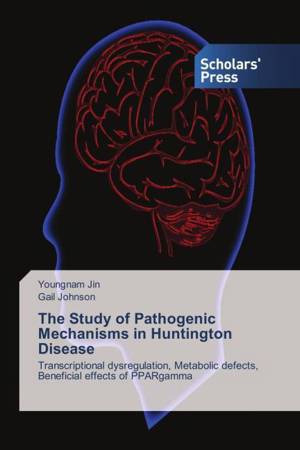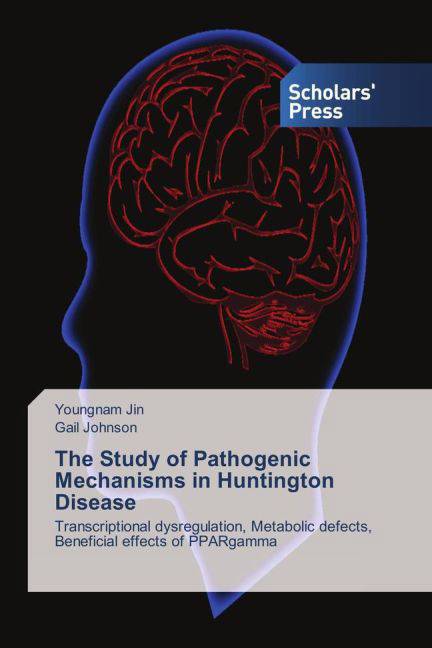
- Afhalen na 1 uur in een winkel met voorraad
- Gratis thuislevering in België vanaf € 30
- Ruim aanbod met 7 miljoen producten
- Afhalen na 1 uur in een winkel met voorraad
- Gratis thuislevering in België vanaf € 30
- Ruim aanbod met 7 miljoen producten
Zoeken
The Study of Pathogenic Mechanisms in Huntington Disease
Transcriptional dysregulation, Metabolic defects, Beneficial effects of PPARgamma
Youngnam Jin, Gail Johnson
Paperback | Engels
€ 78,95
+ 157 punten
Omschrijving
Huntington disease (HD) is a progressive neurodegenerative disease for which there is no cure or effective treatment. Despite a relatively long history of research in HD, the pathogenic mechanisms of HD remain to be fully elucidated, thereby hampering the development of therapeutic approaches. This study demonstrates that transcriptional dysregulation of PPARgamma, PGC-1alpha, and CRE, altered metabolism, and oxidative stress are involved in the pathogenesis of HD. In addition, this study shows that metabolic state affects sensitivity to cellular stress in a cell model of HD and the activation of PPARgamma, an important regulator in metabolism, leads to beneficial effects in HD models. This study will provide better understanding of how mHtt results in metabolic disturbances in HD and more insight for the development of therapeutics to treat HD with PPARgamma being a potential therapeutic target for HD. This book should be especially useful to professionals in biological sciences, healthcare/medical fields, and pharmaceutical industry, or anyone else who is interested in understanding HD or neurodegenerative diseases.
Specificaties
Betrokkenen
- Auteur(s):
- Uitgeverij:
Inhoud
- Aantal bladzijden:
- 172
- Taal:
- Engels
Eigenschappen
- Productcode (EAN):
- 9783639513639
- Uitvoering:
- Paperback
- Afmetingen:
- 150 mm x 220 mm

Alleen bij Standaard Boekhandel
+ 157 punten op je klantenkaart van Standaard Boekhandel
Beoordelingen
We publiceren alleen reviews die voldoen aan de voorwaarden voor reviews. Bekijk onze voorwaarden voor reviews.











